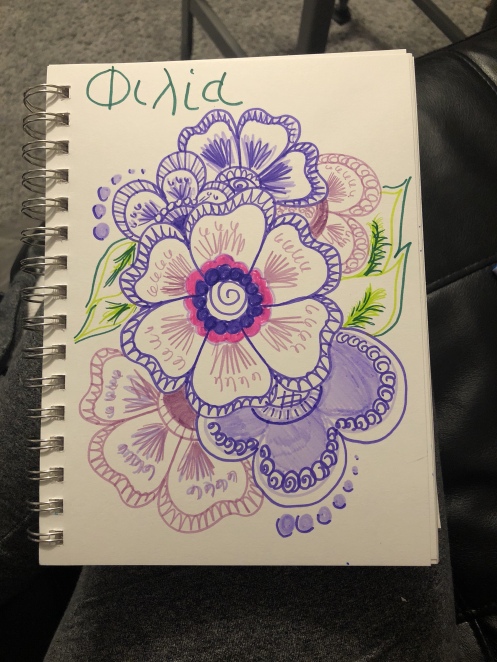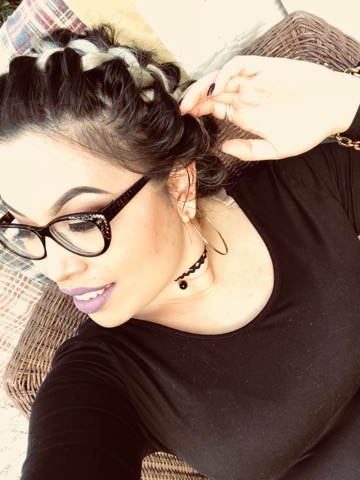Friendship: A summation of what I think.
What are my thoughts thus far?
Let me take it back to my favorite example: the triangle.
The universal account of the triangle is going to be something like “a three-sided plane figure whose interior angles equal 180 degrees.” This account of the triangle will be true of all things considered triangle: isosceles, equilateral, and scalene. It’s not the case, to me at least, that these triangles do not have a special status as THE TRIANGLE, but at the level of explanation, trying to capture what the true feature of all of these is what’s important for theory building.
Now, with the aforementioned explanation of my favorite example of the triangle, what can I say that’s highly influenced by Aristotle about friendship? What I take to be the features that underpin all of the relationships that we title ‘friend’ is what Aristotle states in Rhetoric and Nicomachean Ethics. He writes the following:
[T]o be friends, then, they must be mutually recognized as bearing goodwill and well-wish each other. [N.E. VII.2.1156a2-5]
On friendly feeling,
[W]ishing for him what you believe to be good things, not for your own sake but for his, and being inclined so far as you can, to bring these about [Rhetoric.II.41380b34-37,4381a1-4].
[Also, a friend is someone who brings this feeling about as well.]
A summation of both accounts is the following: the features that underpin friendship are reciprocating goodwill and well-wishing while recognizing that both are in this particular relationship. So, wishing good things for the other person, and doing what you can* to bring those things about.
With these features in mind, I turn now to the types of friendship that Aristotle details, and the kinds of friendship that I support, though I think that there should be a better treatment of the friendship of in-equals in a different blog post.
Pleasure, advantageous, and character friends are the three kinds of relationships that we can have with one another. If we look at the way the friendship begins, it may be in the context of one of these titles. It could also be the case that either the pleasure or advantageous could turn into a character friendship, but I will not argue that here.
Pleasure friendships arise on account of some perceived pleasure. An example I use in my large paper is something like being in a gaming group. The relationships formed there are based on pleasure. Another example that John Cooper provides is the kind of friends you go do fun things with like drinking, but in these cases, it’s not the case that you have a deep understanding of the person. The people could be hot mess disasters, but the reason that you enjoy the relationship is that you have fun with them, so it would not be problematic to claim that you both show some concern for each other.
The advantageous friendship is captured by thinking of friendships that start from business relations, study groups, or whatever can be captured as advantageous.
While these kinds of friendships seem selfishly motivated, you have to at least show some concern for these people that are mutually recognized. Otherwise, you’re not in a friendship, but rather a one-sided relationship. If the only thing that you can* do for a person is provide these particular services or participate in a shared activity, then these kinds of relationships can be captured within this kind of context.
While these are considered lesser friendships, I do not think it’s controversial to claim that these are not deep friendships. So, while at the level of particular (each individual person), I am prepared to call these types of relationships ‘friends,’ but I would not call these kinds of relationships deep in any relevant way nor would I expect these people to go above and beyond what the relationship entails. Moreover, it’s important to note that these kinds of friendships are not expected to last. The friendships of pleasure and advantage last in so far as the relationship is perceived as pleasurable or advantageous. If we think about these relationships in this way, being heartbroken over the end of them might be prevented. Though, I cannot speak for everyone. It might just be the case that one has an attachment and as people we get hurt about the breaking off of these attachments.
The most important kind of friendship is what Aristotle calls friendship ‘proper’ in Eudemian Ethics VII1241a10-15.
The account for this kind of friendship is loving the other person qua person, meaning that you love that person for their character. The person has to actually be pleasurable, helpful, and both have to recognize the mutual choice in loving one another. This friendship is supposed to be the most stable. A wish for a friend is quick, but working toward a character friendship takes experience with the other person. The kind of getting to know that I think about and what is supported in the text is understanding someone well enough to know what they would and wouldn’t do given a particular situation. The people involved in this friendship can defend each other from slander. Aristotle even mentions that this friendship is measured by particular choices we make and by possible tests. I imagine those tests would be something like going above and beyond for someone that both parties reciprocate. It would be like caring enough about the other person’s good to let them know that what they’re doing seems problematic or even being clear enough to tell your friend all of the things you can and cannot do for them in any given temporal time splice.
So, given my characterization of friendships, how practical is it?
I am prepared to admit that even given the friendships that do not last long, I would now hesitate to call people that I am in relationships with ‘friends,’ even of the lesser sort. The reason is that it might take more than three days to figure out whether or not someone shows concern for you. In my youth, I handed out ‘friend’ to everyone without recognizing the ‘actual’ responsibility of ‘close’ friend. It’s not possible to be ‘close’ friends with everyone because we have only so much time, and a lot of us are busy. Granted, this characterization of friendship does not have to be taken, but I find that I have always been someone to take this relationship more seriously. So, this view fits for me.
Given my views, one might ask the question whether I think I am a good friend or not.
I would like to say that I have been a ‘good’ friend of whatever kind you want to attribute to the relationship to some people, and I have not been one to others.
I have made many mistakes as I am a fallible human being. I thought that by simply doing the ‘right’ thing that I would attract good people. I didn’t even have a clue about what ‘right’ even meant, so how could I have been said to be doing the right thing in the first place?
I have ignored the other person before, and I didn’t realize that the other person didn’t even want to be in the activity in which we were participating.
I thought that being a good friend meant remaining someone’s friend despite the vicious feedback I was receiving or ignoring problems that I thought were not right in the name of loyalty. By vicious, I do not mean truth. I mean something like the particular way of delivering particular claims about me, and assuming those claims about me were true in virtue of me thinking the other person had my best interest at heart.
The mistakes I have made can be summarized in the following way:
- Being too quick to call someone ‘friend’ and not understanding that being a decent human need not entail friendship. It’s not the case that I have to go above and beyond for everyone, and it’s not the case that everyone has to do that for me, either.
- I never recognized that just because someone showed the marks of friendship that did not mean that they considered me friend. I inflicted emotional harm on myself and others for not reciprocating some shared activity that the person was never in.
- I allowed people to treat me poorly because of the history between us. I think it’s important to let people know when something bothers you because it will probably continue to happen. Take care of things in the beginning so it doesn’t resurface later. I have been guilty of not expressing how I feel about certain things and letting it continue on and on. It’s not fair for the other person nor is it fair for me.
- I think the most important mistake I have made is not fully understanding who I was as a person. My inconsistent actions could be seen as confusing, and not understanding my own boundaries in turn allows other people to treat me in particular ways, thus leading to problems.
In summation, the game plan moving forward is something like the following:
I want to become a better person, but with that, it does not necessarily mean I have to be friends with everyone. Rather, showing human decency, I think, is enough in most occasions. Also, with graduate school, it’s near impossible to pay attention to everyone that I have called ‘close,’ and I have not respected my friendships in that way. The second plan is not handing out friendship labels as if it were Halloween because I find that there’s a particular kind of care that friendships require that I am just unable to give at this current moment. Further, I do not expect people to be my friend in the robust sense if they do not want my friendship in a particular way. Meaning, I imagine not everyone wants me to ‘mom’ them. I imagine that people just want others to do what they say they will.
None of these realizations about friendships would have been possible if I didn’t have people in my life that supported me throughout my school career. From those people, it was nice to be reassured that I was actually worth a damn.
Now, this is not to say that I am ending friendships, but moving forward, I find that I want to have a new attitude about the way I view relationships, and I hope that this new attitude will help me become better in my internal and external life. I want to sincerely apologize to everyone for not being the ‘friend’ that I was back home given my new context.








